The recipe reflects Marseille’s migrant roots: novel ingredients have passed through France’s biggest port for 2,600 years. Dates entered Europe through here, and most probably tomatoes and bananas too.
Yannick Alléno, Gordon Ramsay, Michelin Guide: Dubai’s dining hub ambitions
Yannick Alléno, Gordon Ramsay, Michelin Guide: Dubai’s dining hub ambitions
Marseille was already trading with Scotland, Germany, Turkey and Egypt when Paris was just a village.
L’Après M (a play on “After McDonald’s”) is also symbolic of Marseille’s underdog status. In 2019, when the original McDonald’s shut up shop and fired the crew, employees fought a tooth-and-nail battle to stay open.
During the Covid-19 pandemic, staff used the restaurant kitchens as their Uber solidaire, delivering 100,000 food parcels to needy locals in the first month alone.
A mural beside the burger service hatches concludes the tale. It features the words Le Resto Du Coeur (“restaurant of the heart”) with a cartoon brioche bun held up by ethnically diverse staff.
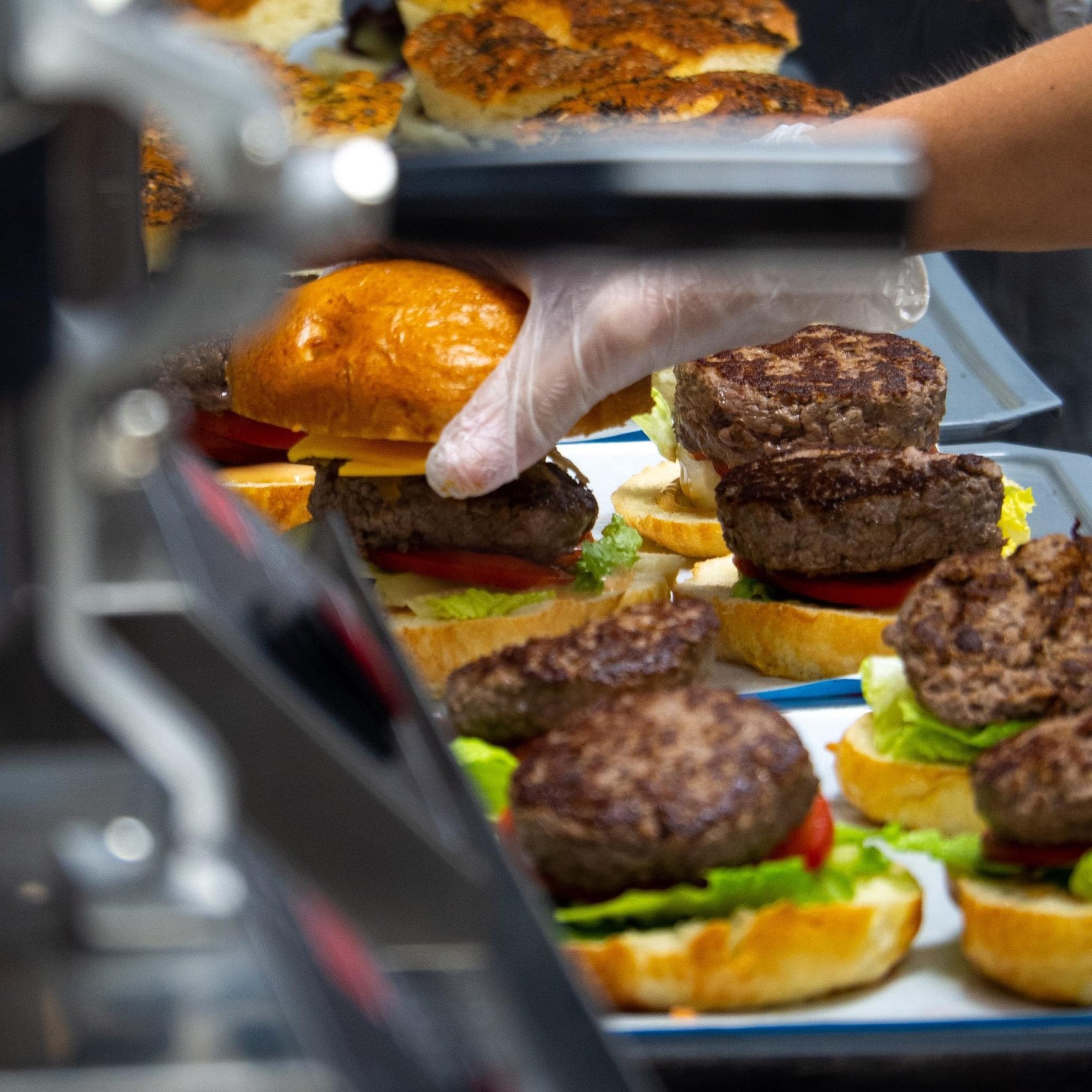
L’Après M must be one of the few fast food restaurants to play raï, North African pop, through its speakers. And alongside Heinz ketchup, you’ll find tongue-lashing sachets of Sauce Algérienne.
Next, I head on the road to Les Baumettes , Marseille’s toughest prison. Around me, Marseillais – as residents are known – travel by rollerblades, rental bikes, motorcycles, dented cars, hoverboards and eScooters .
A transient, hugger-mugger existence is reflected in the shopfronts. Each mini market, butcher, wine merchant, cheese seller, baker and salon du thé is wholesomely independent. This city of two million hosts four Starbucks and five KFCs. It’s as far from the Champs-Élysées as you can possibly get.
Les Baumettes hosts around 1,500 male inmates, with a separate wing for female and juvenile offenders. In 1977, the last criminal in France to be guillotined was executed here.
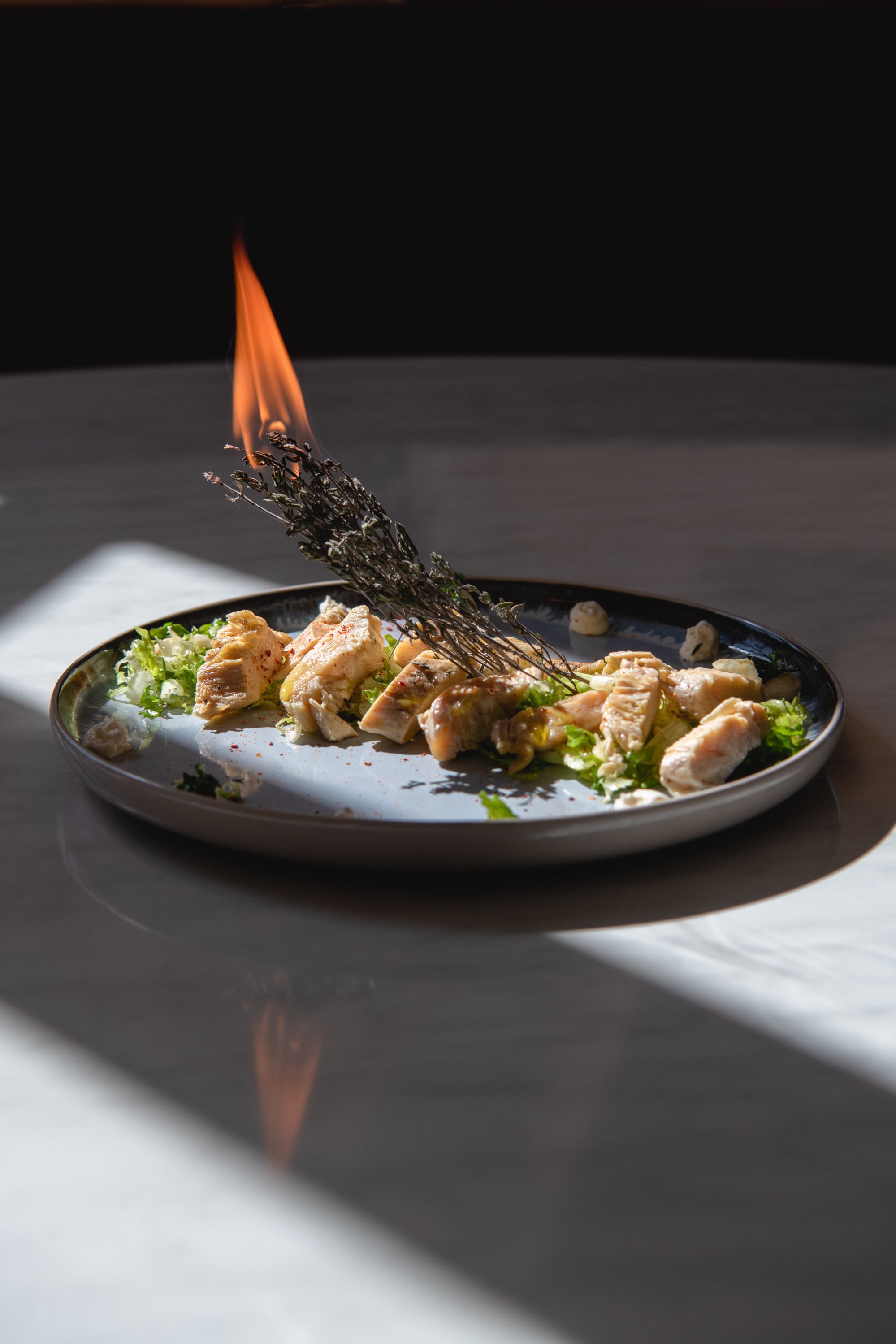
The prison, built in 1936, is enormous, ring-fenced and austere (albeit with art deco flourishes). It’s the last place you’d want to go on a first date. But it’s also the most surprising location for a culinary revolution that celebrates prisoner rehabilitation.
Inside the belly of Les Baumettes is new restaurant Les Beaux Mets (the beautiful dishes), a play on the name of the prison.
To gain access, diners must surrender their passport and mobile phone, then enter an airport-style security check, having already passed a criminal record test online before arrival.
The 44-cover restaurant looks like a top-tier dining salon. It was styled by Rougerie+Tangram, the architectural agency behind Marseille’s InterContinental Hotel Dieu. It is staffed by 14 male inmates split into two brigades.
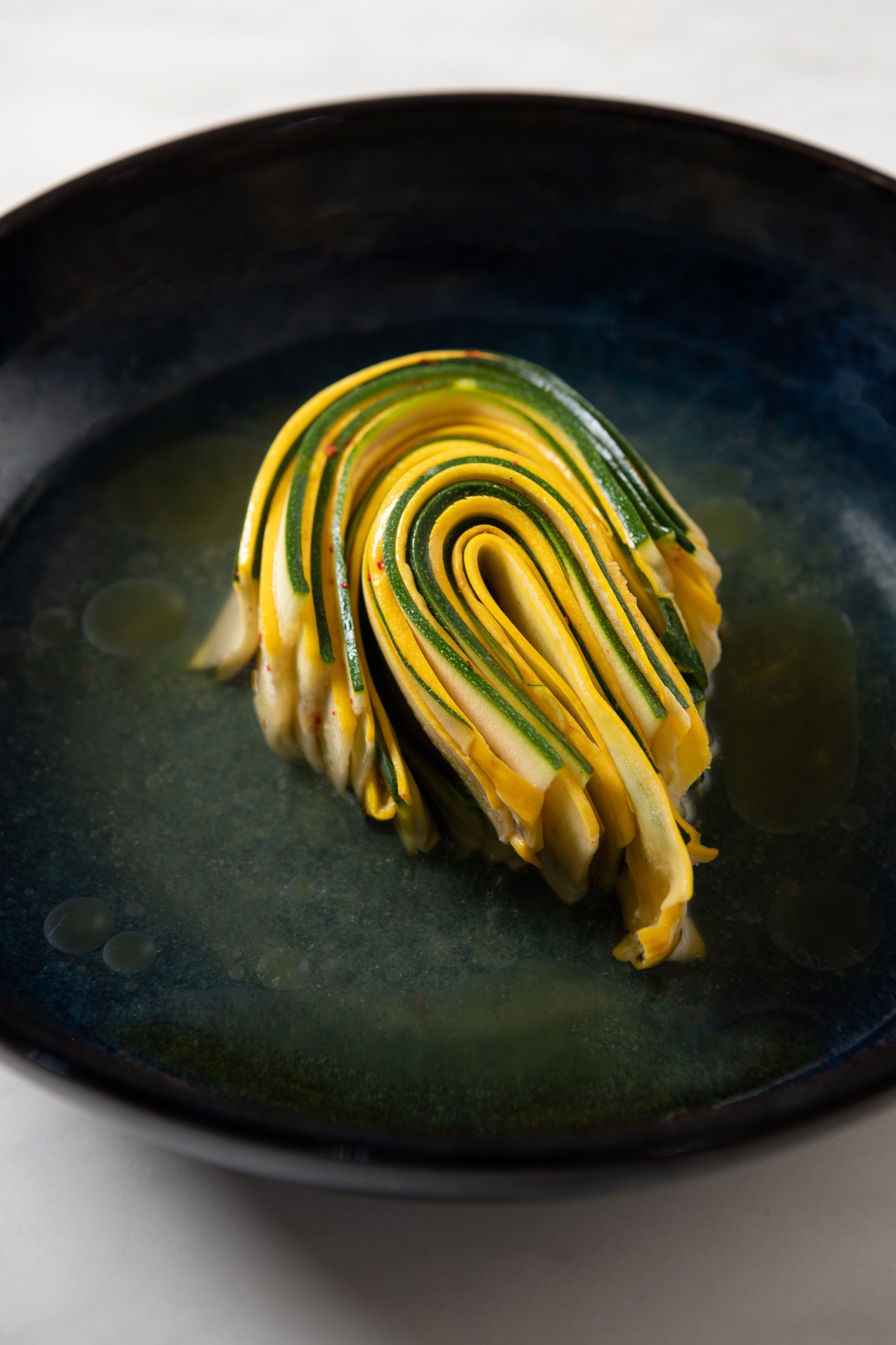
Les Beaux Mets’ open kitchen is led by Sandrine Sollier. She was recruited from the three-Michelin-star kitchen of Gérald Passedat – the €5.90 (US$6.47) burger guy and general godfather of Marseille cookery – where she prepared €370 tasting menus for diners enjoying views of the Mediterranean.
The views here are of barbed wire and security cameras. It’s French gastronomy in the upside down.
I am joined for the €35 three-course lunch by Les Beaux Mets manager Carole Guillerm. The restaurant is operated by Festin, a culinary non-profit that promotes the social and professional reintegration of prisoners, while seeking to fill France’s 200,000 open catering jobs with people from the margins of society.
“Inmates are learning teamwork and timekeeping as well as cooking,” Guillerm says.

Their skills are in evidence on our first course. An ozone-fresh sashimi is crowned by cubed beet, crisped onion and coriander semi-pickled with its stalks. The dish’s sweet-sour unctuous crunch plays Michelin-style war games on the palate.
It also makes me wonder what “real” French prison food is like? Most eat food boxes prepared by catering mega corporation Sodexo. “It’s not as tasty as the Les Beaux Mets staff meal,” says Guillerm.
Guillerm shares a recent success story. “To help inmates into employment on release, this prison inaugurated the Structure d’Accompagnement à la Sortie (SAS) scheme.” One inmate was released for an internship at Michelin-star Marseille restaurant Une Table au Sud, headed by chef Ludovic Turac.
“Mr Turac was so pleased he offered the inmate a position at Une Table,” Guillerm says. A job also comes with a salary and self-respect.
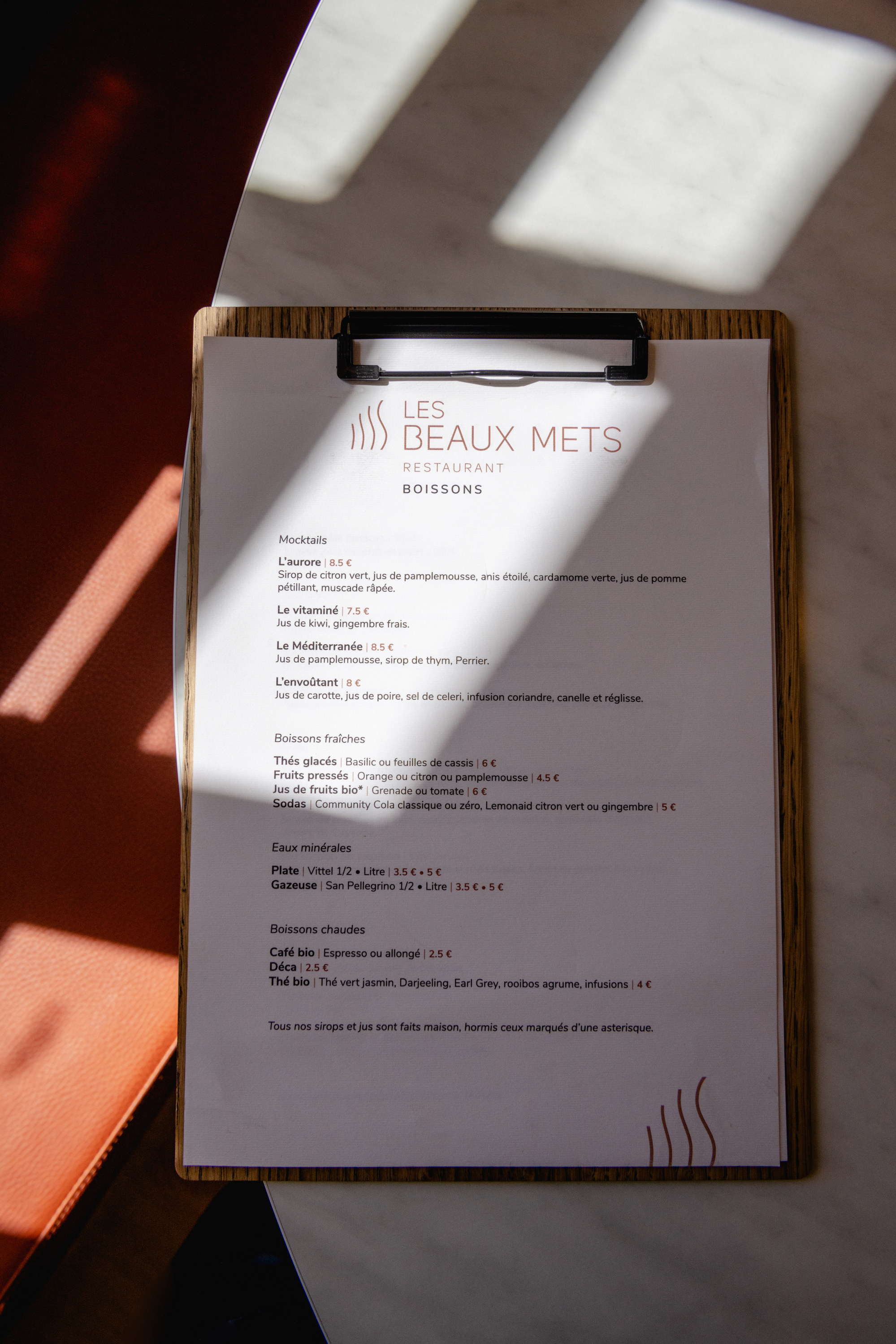
As Les Beaux Mets only opened in late 2022, no official recidivism figures are available, but SAS has now spread to prisons across France.
We move onto our mains: Lamelles de courgettes, zucchini thinly sliced and piled like green-gold playing cards, steeped in a fiery citrus soup. It’s exceptional.
We also savour joue de boeuf, a beef cheek slow-cooked into a butter-like consistency. The recipe usually calls for a red wine marinade but cooking with alcohol is not possible at Les Beaux Mets.
I pair my order with an Aurore mocktail (€8): grapefruit juice, star anise, cardamom and lime syrup, shaken by a trainee bartender who, in my opinion, will go far.
‘Decent wine’ and a whole lot more: World’s 50 Best Vineyards 2023 ranked
‘Decent wine’ and a whole lot more: World’s 50 Best Vineyards 2023 ranked
My beautifully presented dessert is a burning hot peach topped with frozen hazelnut cream and crushed walnuts: a textural journey by thermostat. The desserts are served by Elias, who, like all Les Beaux Mets staff, has between six and 24 months left on his sentence.
Will Elias carry his skills out of prison? “I have better trust, better confidence,” he explains, with the gentle stillness of a young man who has seldom spoken to a civilian for many years.
He has an internship lined up at Le République, a restaurant solidaire that serves expensive cuisine to those who can afford it – but also sells the same dishes to customers who can’t, for a symbolic €1.
“Now I know how to serve people,” says Elias, just as Les Beaux Mets has served him.
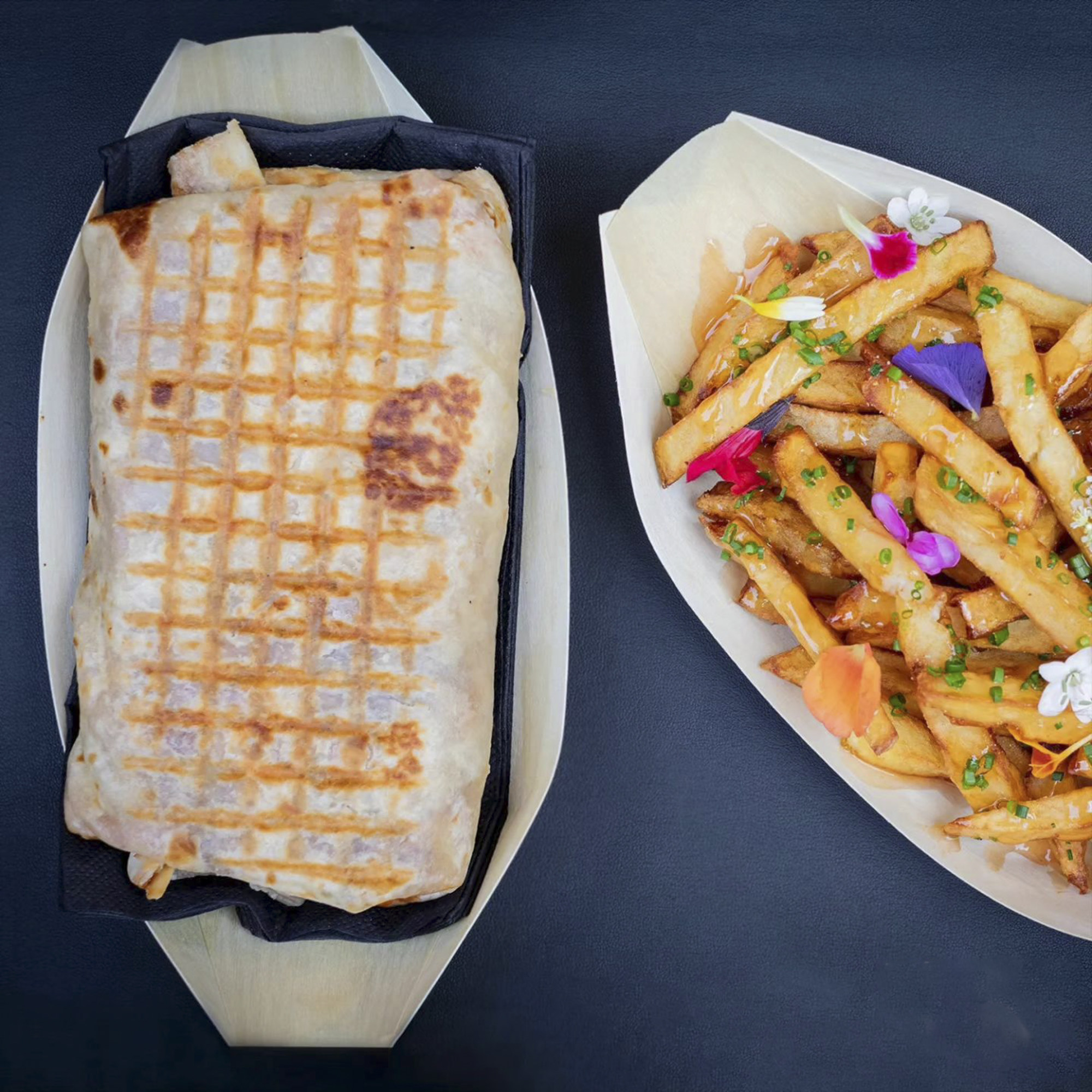
The route back to central Marseille is festooned with street art. Murals feature class warriors who’ve battled against the odds: Diego Maradona, Che Guevara, Frida Kahlo.
Some claim that la France profonde, or the elements of deeply French identity, is represented by the rural, hilly Auvergne or the Loire Valley, where elderly producers make stonking cheeses and fine wine. Instead it’s right here, where cuisine mirrors Marseille society: youthful, dynamic and, by necessity, utterly inventive.
The road passes the Stade Vélodrome, where soccer matches will be held during the 2024 Olympic Games hosted by Paris. Here young chef Alexandre Mazzia of Restaurant AM, which gained its third Michelin star in 2023, hosts a discount food truck named Michel. The food truck’s dishes will also feed athletes at the Olympic Village.
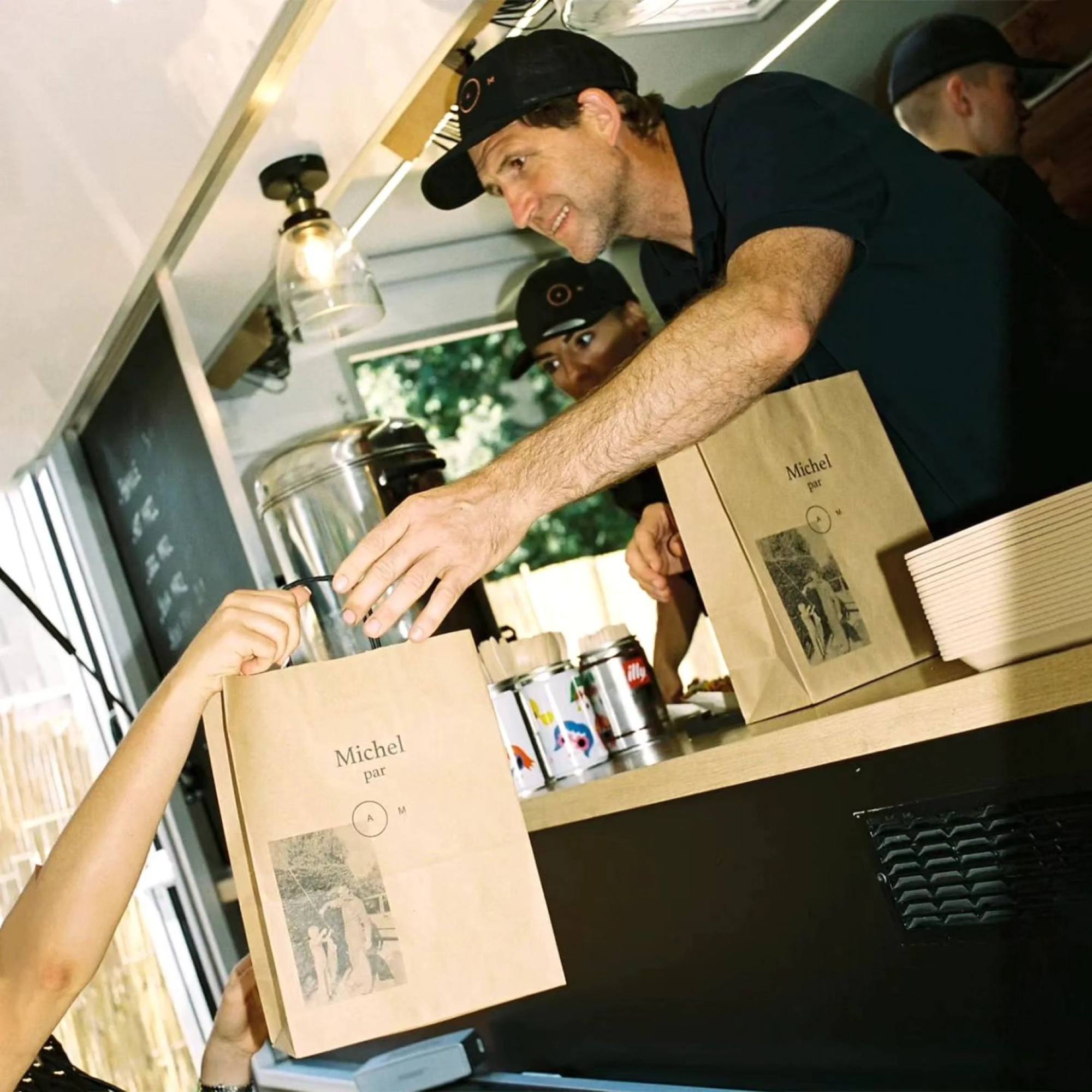
Queues for lunchtime sandwiches at Michel start at 11.30am. The food reflects Mazzia’s melting-pot upbringing: born in the Congo, with grandparents who included a Corsican fisherman and an Italian saxophonist, he moved to France aged 15. His is one of two million stories typical of Marseille.
I order a €14 KebAM. It’s a kebab redux, spiced, skewered chicken zinged with chimichurri and chilli gel, served with home-made fries and laced with edible flowers.
Marseille’s top chefs have dug deep to bring haute cuisine to its hoi polloi. France’s oldest city tastes fresh.

